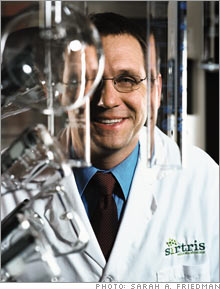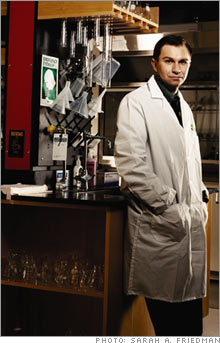Potential Wonder Resveratrol = 1000 Bottles of Red Wine
By The Staff at wowOwow.com
© Shutterstock
We’ll use any excuse to drink red wine. Now, a Cambridge, Massachusetts-based biotech company has come up with the best argument for red wine we’ve ever heard: Resveratrol, a substance found in the skin of red grapes, can not only slow down the aging process and prevent diseases like Alzheimer’s, diabetes, heart diseases and possibly cancer, it can even help your diet plan.
You’d have to drink the equivalent of 1,000 bottles of red wine to match the benefits of one pill, which is said to work by triggering the sirtuin longevity gene.
"Our goal is to prevent and forestall many of the diseases that strikes us as we reach 50, 60 and 70. All with one pill," Dr. Christoph Westphal told Morley Safer on "60 Minutes" last night.
He gave a pretty compelling demonstration of Resveratrol’s effectiveness — in mice, at least. Two mice ate a high-fat diet; one received Resveratrol and the other didn’t. After 12 weeks, the one who had taken the drug wasn’t as fat and could run farther. And when they died, that same mouse had youthful, fat-free organs. (The New Yorker had some fun imagining this experiment.)
But will it work in humans? So far it’s been tested on diabetics and has lowered their glucose and insulin levels — with no diet or drug interventions. Next they’re going to try a more potent version on cancer patients. If all goes well, it’s estimated it should be available in the marketplace in as little as five years.
Read more about: Alzheimer's Disease, Cancer, Diabetes, Health, News, Resveratrol
You might also like:
- Study: Vitamin B Does Not Slow Alzheimer's, May Boost Depression
- Study: Nonmelanoma Skin Cancer Ups Risk for Other Cancers
- Study: Smoking, Drinking Linked to Stomach, Throat Cancer
- Study: Gingko Biloba Doesn't Slow Alzheimer's Disease
- Ashley Judd's Rwanda Diaries Part Six: So Much Potential, So Little Time




 Reply With Quote
Reply With Quote A lot has been said already about
A lot has been said already about 








Bookmarks